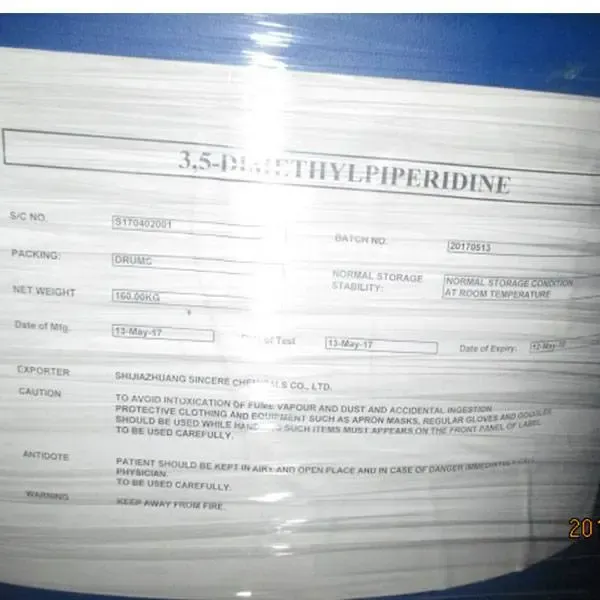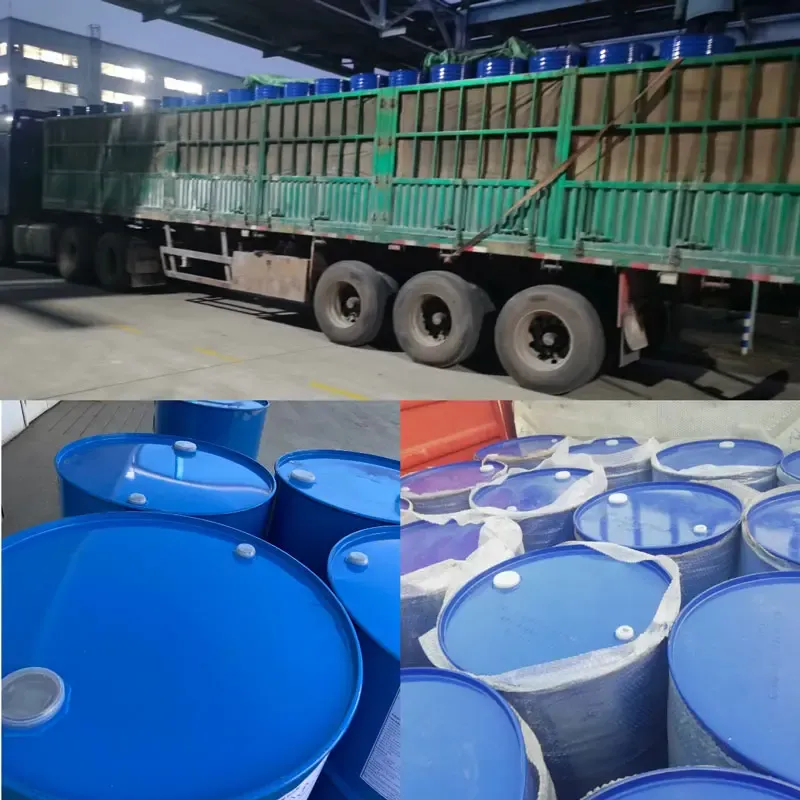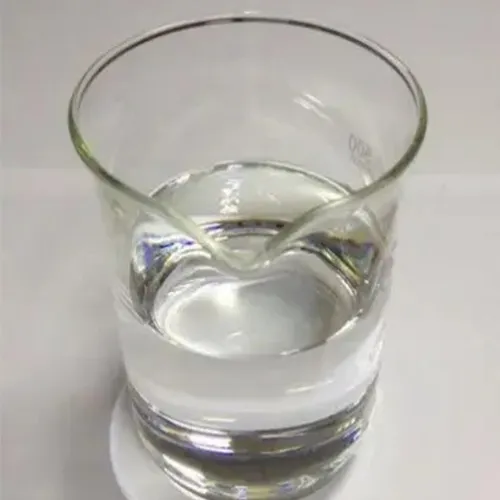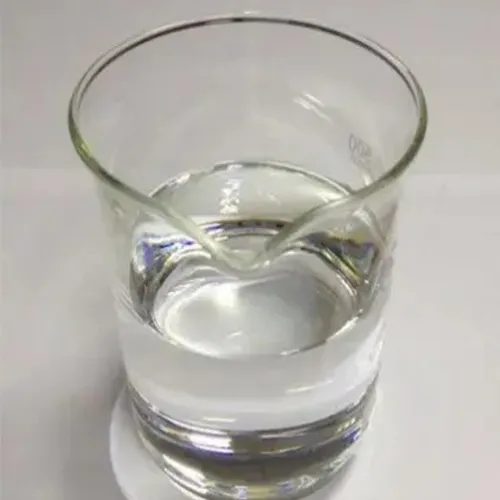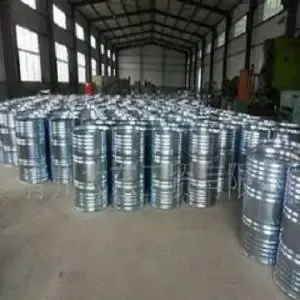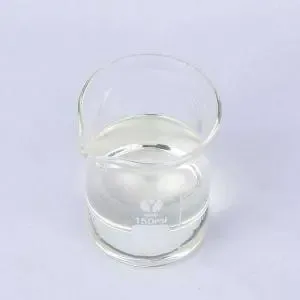Sodium Carboxymethyl Cellulose (CMC) - High Purity Thickener & Stabilizer
In the intricate landscape of industrial chemistry, Sodium Carboxymethyl Cellulose (CMC) stands as a versatile and indispensable polymer. As a water-soluble cellulose derivative, CMC finds extensive application across a multitude of sectors, valued for its unique properties as a thickener, binder, stabilizer, and film-former. This comprehensive overview delves into the critical aspects of CMC, from its manufacturing nuances to its diverse applications and strategic importance in modern industrial processes.
Industry Trends and Market Dynamics
The global market for Sodium Carboxymethyl Cellulose (CMC) is characterized by steady growth, driven primarily by increasing demand from the food and beverage, pharmaceutical, personal care, and oil and gas industries. According to recent market analyses, the CMC market is projected to reach a valuation of over $2 billion by 2028, expanding at a Compound Annual Growth Rate (CAGR) of approximately 4.5% from 2023. Key drivers include the rising preference for natural and bio-based ingredients, the expanding scope of applications in enhanced oil recovery (EOR), and the growing need for efficient rheology modifiers in various manufacturing processes.
Technological advancements in manufacturing processes, focusing on higher purity and tailored functional properties, are also shaping the market. Manufacturers are increasingly investing in R&D to produce specialized CMC grades that offer superior viscosity control, improved thermal stability, and enhanced solubility, catering to niche applications such as advanced ceramics and textiles. Sustainability concerns are also influencing production, with a push towards more environmentally friendly synthesis methods and raw material sourcing. The shift towards plant-based diets and natural cosmetic formulations further solidifies CMC's position as a preferred additive across consumer goods.
Detailed Manufacturing Process Flow of Sodium Carboxymethyl Cellulose (CMC)
The production of Sodium Carboxymethyl Cellulose (CMC) involves a meticulously controlled chemical reaction, primarily etherification, using purified cellulose as the raw material. The process aims to introduce carboxymethyl groups (-CH₂COOH) onto the cellulose backbone, typically under alkaline conditions.
Process Steps:
- 1. Alkali Cellulose Preparation: Highly pure cellulose (typically wood pulp or cotton linters) is steeped in a concentrated sodium hydroxide (NaOH) solution. This mercerization step swells the cellulose fibers, making the hydroxyl groups more accessible for subsequent reaction. The temperature and concentration of NaOH are critical for controlling the degree of substitution (DS) in the final product.
-
2. Etherification: The alkali cellulose is then reacted with monochloroacetic acid (MCA) or its sodium salt (sodium monochloroacetate, SMCA) in the presence of an inert organic solvent (e.g., isopropanol or ethanol) to control the reaction kinetics and heat dissipation. This etherification process forms the carboxymethyl groups. The reaction is typically carried out in a jacketed reactor with precise temperature control (e.g., 50-70°C).
Reaction Schematic:
[Cell-OH] + NaOH → [Cell-O⁻Na⁺] + H₂O
[Cell-O⁻Na⁺] + ClCH₂COONa → [Cell-OCH₂COONa] + NaCl
- 3. Neutralization: After the desired degree of substitution is achieved, the reaction mixture is neutralized with an acid (e.g., acetic acid or hydrochloric acid) to precipitate the CMC and remove excess alkali.
- 4. Washing: The crude CMC is extensively washed with an aqueous-organic solvent mixture (e.g., ethanol-water) or directly with water to remove by-products like sodium chloride and unreacted reagents. The efficiency of washing dictates the purity of the final product. Multiple washing stages are often employed.
- 5. Drying: The purified CMC cake is then dried using industrial dryers (e.g., rotary dryers, fluidized bed dryers, or vacuum dryers) to reduce its moisture content to specified levels (typically below 10%). Careful control of drying temperature prevents degradation.
- 6. Grinding and Sieving: The dried CMC is milled into a fine powder or granular form and sieved to achieve the desired particle size distribution, crucial for its solubility and dispersibility in various applications.
- 7. Quality Control and Packaging: The final product undergoes rigorous quality checks according to international standards (e.g., ISO 9001, FCC, USP/BP for specific grades). Parameters like viscosity, degree of substitution, purity, pH, and moisture content are verified. It is then packaged in moisture-proof bags for distribution.
Testing standards for Sodium Carboxymethyl Cellulose (CMC) production often adhere to ISO 9001 for quality management systems, and product specifications align with international pharmacopoeias (USP, BP, EP) for pharmaceutical grades, Food Chemicals Codex (FCC) for food grades, and ASTM standards for industrial applications. The service life of CMC, as an additive, is inherently tied to its application environment and storage conditions, typically maintaining stability for 24-36 months when stored in cool, dry conditions away from direct sunlight.
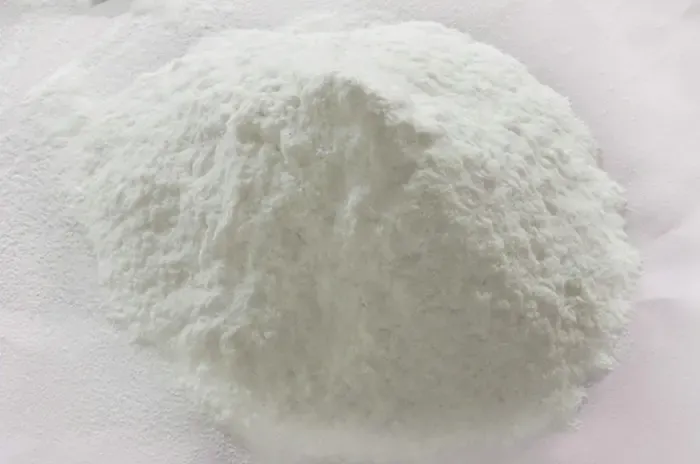
Technical Specifications and Grades of Sodium Carboxymethyl Cellulose (CMC)
Sodium Carboxymethyl Cellulose (CMC) is available in various grades, each optimized for specific applications through tailored molecular weight, degree of substitution (DS), and purity levels. The degree of substitution, ranging typically from 0.4 to 1.5, significantly influences CMC's solubility, viscosity, and other functional properties. Higher DS values generally lead to increased water solubility and transparency of solutions.
Typical Product Specification Table for Industrial Grade CMC:
| Parameter | Specification | Test Method / Standard |
|---|---|---|
| Appearance | White to yellowish, odorless, tasteless granular or powder | Visual Inspection |
| Degree of Substitution (DS) | 0.60 - 0.95 | ASTM D1439 |
| Viscosity (2% Solution, Brookfield, 25°C) | 500 - 5000 mPa·s (cP) | ISO 14450 / ASTM D1439 |
| Purity (CMC Content) | ≥ 98.0% | Gravimetric Method |
| Moisture Content | ≤ 10.0% | Loss on Drying (LOD) |
| pH (1% Solution) | 6.0 - 8.5 | pH Meter |
| Particle Size (Mesh) | 80-200 mesh (typ.) | Sieve Analysis |
These specifications are crucial for ensuring the appropriate performance of Sodium Carboxymethyl Cellulose (CMC) in various applications. For instance, high-purity CMC with specific viscosity ranges is essential for food and pharmaceutical applications, while industrial grades may tolerate wider ranges for cost-effectiveness.
Diverse Application Scenarios
The versatility of Sodium Carboxymethyl Cellulose (CMC) allows it to serve critical functions across an extensive array of industries. Its rheological properties, binding capabilities, and stabilizing effects make it an invaluable additive.
Target Industries and Typical Use Cases:
- Food and Beverage: Used as a thickener in sauces, dressings, and ice creams; a stabilizer in dairy products to prevent syneresis; a binder in processed foods; and a fat replacer in low-fat products. It contributes to texture, mouthfeel, and shelf stability.
- Pharmaceuticals: Functions as a binder in tablet formulations, a disintegrant, a suspending agent in liquid medications, and a film-former in coatings. Its inertness and non-toxicity are key advantages.
- Personal Care & Cosmetics: Employed as a viscosity modifier in shampoos, lotions, and toothpastes; a stabilizer in emulsions; and a film-former in hair gels. It provides smooth texture and consistent product performance.
- Oil & Gas (Enhanced Oil Recovery - EOR): Utilized as a fluid loss additive, rheology modifier, and thickener in drilling muds, fracturing fluids, and cementing slurries. It helps maintain borehole stability, controls fluid loss to formations, and improves drilling efficiency. This is a critical application where its pseudoplastic behavior is highly valued.
- Textiles: Used as a sizing agent to improve yarn strength and reduce breakage during weaving, a thickener for textile printing pastes, and a binder for non-woven fabrics.
- Paints & Coatings: Acts as a rheology modifier and thickener, preventing pigment settling and improving brushability and leveling properties.
- Detergents: Functions as a soil anti-redeposition agent, preventing loosened dirt from re-depositing onto fabrics during washing.
- Construction: Used in gypsum products, cement-based mortars, and tile adhesives as a water retention agent, thickener, and binder, improving workability and adhesion.
In these diverse applications, CMC consistently demonstrates advantages such as cost-effectiveness, environmental compatibility (being biodegradable), and exceptional performance stability across a range of temperatures and pH values. For instance, in drilling applications, it enhances fluid performance, leading to energy saving through reduced pumping power and improved corrosion resistance of drilling tools by maintaining a stable pH environment.

Technical Advantages and Performance Benefits
The robust chemical structure and excellent physiochemical properties of Sodium Carboxymethyl Cellulose (CMC) confer a distinct set of technical advantages, making it a preferred choice over many synthetic or other natural polymers in numerous applications.
- Superior Rheology Modification: CMC exhibits pseudoplasticity and thixotropic behavior, meaning its viscosity decreases under shear stress and recovers when the stress is removed. This property is highly beneficial in applications like paints (easy application, no drips), drilling fluids (efficient pumping, stable cuttings suspension), and food products (smooth pouring, good mouthfeel). It provides excellent viscosity control over a wide range of concentrations.
- Exceptional Water Retention: Due to its hydrophilic nature, CMC has a high capacity to absorb and retain water. This is crucial in construction materials (extending open time for mortars), ceramics (improving plasticity and strength of green bodies), and food products (preventing drying out).
- Effective Binding and Film-Forming: CMC acts as a strong binder, enhancing the integrity and strength of materials in applications such as tablets, briquettes, and paper. Its film-forming ability provides protective barriers, crucial in edible coatings or textile sizing.
- High Purity and Stability: Commercial grades of CMC are manufactured to high purity standards, ensuring minimal undesirable interactions. It maintains stable performance across a wide pH range (typically 4-10) and moderate temperatures, resisting enzymatic degradation better than some other cellulose derivatives.
- Biodegradability and Safety: As a cellulose derivative, CMC is biodegradable and generally recognized as safe (GRAS) by regulatory bodies like the FDA for food contact and direct consumption, making it an environmentally friendly and health-conscious choice.
- Synergistic Effects: CMC can exhibit synergistic thickening effects when combined with other hydrocolloids or polymers, allowing for optimized formulations and reduced total additive usage.
- Cost-Effectiveness: Given its performance attributes and widespread availability, CMC offers a highly cost-effective solution for viscosity modification, stabilization, and binding compared to many synthetic alternatives.
These advantages position CMC as a cornerstone ingredient for manufacturers seeking reliable, high-performance, and safe solutions in their product development.
Vendor Comparison and Selection Criteria
Selecting the right supplier for Sodium Carboxymethyl Cellulose (CMC) is crucial for ensuring consistent product quality, supply chain reliability, and technical support. Buyers should evaluate vendors based on several key criteria beyond just price.
Key Vendor Selection Criteria:
- Product Quality and Consistency: Verified through certifications (e.g., ISO 9001, FSSC 22000 for food-grade, cGMP for pharma-grade) and rigorous batch testing. Ask for COAs (Certificates of Analysis) and consistent adherence to specifications.
- Range of Grades and Customization: A vendor offering a wide portfolio of CMC grades (different DS, viscosity, particle size) can better meet diverse application needs. The ability to provide customized solutions is a significant advantage.
- Technical Support and R&D Capabilities: Strong technical teams can assist with product selection, application optimization, and troubleshooting. Active R&D indicates commitment to innovation and future-proofing.
- Supply Chain Reliability: Global presence, robust logistics, and redundant production capabilities ensure timely delivery and mitigate supply risks.
- Regulatory Compliance: Adherence to relevant international food, pharmaceutical, and industrial regulations (e.g., FDA, EFSA, REACH) is non-negotiable, especially for sensitive applications.
- Experience and Reputation: Years in the industry, positive customer feedback, and a strong track record indicate reliability and expertise.
Comparison Table: Leading CMC Suppliers (Illustrative)
| Criterion | Supplier A (Example: Sincere Chemicals) | Supplier B (Example: Global Chem Inc.) | Supplier C (Example: Innovate Polymers) |
|---|---|---|---|
| Product Range (Grades) | Extensive (Food, Pharma, Industrial, Oilfield) | Moderate (Primarily Industrial & Detergent) | Specialized (High-Purity Food & Pharma) |
| Certifications | ISO 9001, FSSC 22000, Halal, Kosher | ISO 9001 | ISO 9001, cGMP, FDA-registered |
| Technical Support | Excellent, Application-Specific Experts | Good, General Product Support | Highly Specialized, R&D Collaboration |
| Global Reach | Strong International Distribution Network | Regional Focus (Asia/Europe) | Limited, High-Value Markets |
| Customization Offered | Yes, Tailored DS, Viscosity, Purity | Limited, Standard Grades | Yes, Extensive for High-End Applications |
This comparison highlights how different suppliers specialize, emphasizing the importance of aligning a vendor's strengths with specific project requirements. Sincere Chemicals, with its extensive product range and robust certifications, aims to be a comprehensive partner for diverse CMC needs.
Customized Solutions and Tailored Formulations
Recognizing that standard grades of Sodium Carboxymethyl Cellulose (CMC) may not always perfectly fit highly specialized or novel applications, leading manufacturers offer customized solutions. This involves tailoring the polymer's properties to meet unique client specifications, optimizing performance and cost-efficiency.
Customization can focus on several key parameters:
- Degree of Substitution (DS): Modifying the DS allows for precise control over solubility, gel strength, and electrolyte tolerance. A lower DS might be preferred for certain film-forming or coating applications, while a higher DS is typically desired for improved clarity and stability in solutions.
- Viscosity Profile: By controlling molecular weight and reaction conditions, CMC can be produced with specific viscosity ranges, from low to ultra-high. This is crucial for applications requiring precise rheological control, such as in drilling fluids or specific food textures.
- Purity Level: For sensitive applications (e.g., pharmaceuticals, high-end food products), ultra-high purity CMC with minimal impurities (e.g., sodium chloride, glycolates) can be developed to meet stringent regulatory requirements (e.g., USP, EP, FCC).
- Particle Size Distribution: Fine powders offer rapid dissolution, while granular forms reduce dusting and improve handling. Customizing particle size can optimize dispersion rates and handling characteristics for specific processing equipment.
- Acid/Salt Tolerance: For applications in extreme pH environments or high salinity (common in oilfield operations), CMC grades with enhanced acid or salt tolerance can be engineered to maintain performance integrity.
Through a collaborative approach, our technical team works closely with clients to define requirements, conduct pilot trials, and scale up production of tailored Sodium Carboxymethyl Cellulose (CMC) grades, ensuring optimal product integration and performance.
Real-World Application Case Studies
The practical effectiveness of Sodium Carboxymethyl Cellulose (CMC) is best demonstrated through its successful deployment in various industrial contexts. Here are a few examples showcasing its impact:
Case Study 1: Enhanced Oil Recovery (EOR) in the Permian Basin
- Challenge: An oil and gas exploration company operating in the Permian Basin faced challenges with drilling mud stability in high-temperature, high-pressure wells. The existing polymer additives degraded, leading to significant fluid loss, wellbore instability, and increased non-productive time.
- Solution: They switched to a high-purity, high-viscosity CMC grade with enhanced thermal and salt stability. This specific CMC was designed to maintain its rheological properties under extreme conditions.
- Results: The introduction of CMC significantly reduced fluid loss by over 30%, stabilized the wellbore, and improved the carrying capacity of drilling muds. This led to a 15% reduction in drilling time per well and substantial savings in operational costs, along with improved safety records due to fewer wellbore incidents.
Case Study 2: Improving Texture and Stability in Plant-Based Dairy Alternatives
- Challenge: A major food manufacturer was struggling to achieve the desired creamy texture and prevent phase separation in their new line of oat-based milk and yogurt alternatives, which were experiencing shelf-life issues.
- Solution: A food-grade CMC with a specific molecular weight and DS was incorporated into the formulations. This CMC grade was chosen for its excellent water-binding capacity and ability to form stable emulsions.
- Results: The addition of CMC led to a significant improvement in product texture, mimicking the mouthfeel of traditional dairy products. It effectively prevented sedimentation and phase separation, extending the shelf life of the plant-based alternatives by an average of two weeks, enhancing consumer satisfaction and market competitiveness.

Frequently Asked Questions (FAQ) about Sodium Carboxymethyl Cellulose (CMC)
Q: What is the primary function of CMC in industrial applications?
A: Sodium Carboxymethyl Cellulose (CMC) primarily functions as a rheology modifier (thickener, viscosifier), binder, stabilizer, water retention agent, and film-former. Its specific role depends on the application, leveraging its ability to control fluid properties and enhance material integrity.
Q: Is CMC safe for food and pharmaceutical use?
A: Yes, specific food-grade and pharmaceutical-grade CMC products are widely recognized as safe (GRAS by FDA) and approved by various regulatory bodies globally (e.g., EFSA, Health Canada). These grades undergo rigorous purification and testing to meet stringent standards.
Q: How does the degree of substitution (DS) affect CMC performance?
A: The Degree of Substitution (DS) is the average number of carboxymethyl groups per anhydroglucose unit. A higher DS generally results in increased water solubility, higher solution clarity, better stability in acidic conditions, and improved film-forming properties. Lower DS grades might exhibit different swelling characteristics and can be suitable for specific binding or non-aqueous applications.
Q: What is the typical shelf life of CMC?
A: When stored in original, unopened packaging in a cool, dry place away from direct sunlight and moisture, CMC typically has a shelf life of 24 to 36 months without significant degradation of its functional properties.
Lead Time, Fulfillment, and Logistics
Efficient supply chain management is paramount for our B2B clients. We commit to transparent and reliable lead times for Sodium Carboxymethyl Cellulose (CMC) orders, ensuring your production schedules remain uninterrupted.
- Standard Lead Time: For most standard grades of CMC, our typical lead time is 2-4 weeks from order confirmation, depending on the volume and specific grade requested.
- Expedited Orders: We offer options for expedited processing and delivery for urgent requirements, subject to an additional charge and material availability. Please contact our sales team to discuss specific needs.
- Packaging: CMC is typically supplied in multi-ply paper bags with an inner plastic lining, usually 25 kg net weight. Bulk bag options (e.g., 500 kg, 1000 kg) are also available upon request for larger industrial applications.
- Logistics and Shipping: We utilize a robust global logistics network, offering various shipping methods (sea freight, air freight, road transport) to ensure timely and cost-effective delivery to your specified destination worldwide. All shipments are handled with strict adherence to international safety and packaging standards.
- Customs and Documentation: Our experienced team handles all necessary export/import documentation, customs clearances, and regulatory compliance to ensure a smooth and hassle-free delivery process for international clients.
We maintain sufficient inventory levels for high-demand grades to support consistent supply, minimizing potential disruptions for our long-term partners.
Warranty Commitments and After-Sales Support
Our commitment to quality extends beyond product delivery. We stand behind the excellence of our Sodium Carboxymethyl Cellulose (CMC) products with clear warranty commitments and comprehensive after-sales support.
- Product Warranty: All CMC products are warranted to conform to the specifications outlined in their respective Certificates of Analysis (CoA) and agreed-upon product data sheets for a period of 12 months from the date of shipment, provided they are stored and handled according to our recommendations. In the event of any non-conformity, we commit to investigation, replacement, or credit as per our quality assurance policy.
- Technical Support: Our dedicated team of technical experts and application specialists is available to provide ongoing support. This includes assistance with product selection, formulation guidance, troubleshooting specific application issues, and optimizing usage to achieve desired performance. Support is accessible via phone, email, and virtual consultations.
- Quality Assurance and Traceability: We operate under stringent ISO 9001 certified quality management systems. Every batch of CMC is fully traceable from raw material sourcing through production to final delivery, ensuring accountability and adherence to the highest quality standards.
- Complaint Resolution: We have a formalized and efficient process for handling customer feedback and complaints. Any concerns regarding product quality or performance are treated with urgency and investigated thoroughly to provide a timely and satisfactory resolution.
- Documentation Support: We provide comprehensive documentation, including Safety Data Sheets (SDS), Certificates of Analysis (CoA), technical data sheets, and regulatory compliance statements, to support your internal quality processes and regulatory filings.
Our goal is to build long-term partnerships by providing not just high-quality products, but also unparalleled support and reliability.

The strategic selection and application of Sodium Carboxymethyl Cellulose (CMC) are pivotal for achieving optimal performance, efficiency, and cost-effectiveness across a diverse range of industrial sectors. By understanding its manufacturing intricacies, technical specifications, and the advantages offered by leading suppliers, businesses can leverage CMC's unique properties to innovate and excel.
References
- Food and Drug Administration (FDA). Generally Recognized As Safe (GRAS) Notice for Carboxymethyl Cellulose.
- International Organization for Standardization (ISO). ISO 9001:2015 Quality management systems — Requirements.
- American Society for Testing and Materials (ASTM). ASTM D1439 - 20 Standard Test Methods for Sodium Carboxymethylcellulose.
- Food and Agriculture Organization of the United Nations (FAO) and World Health Organization (WHO). Joint FAO/WHO Expert Committee on Food Additives (JECFA) monographs.
- European Food Safety Authority (EFSA). Scientific Opinions on Food Additives.
Post time: Sep . 29, 2025 17:10











